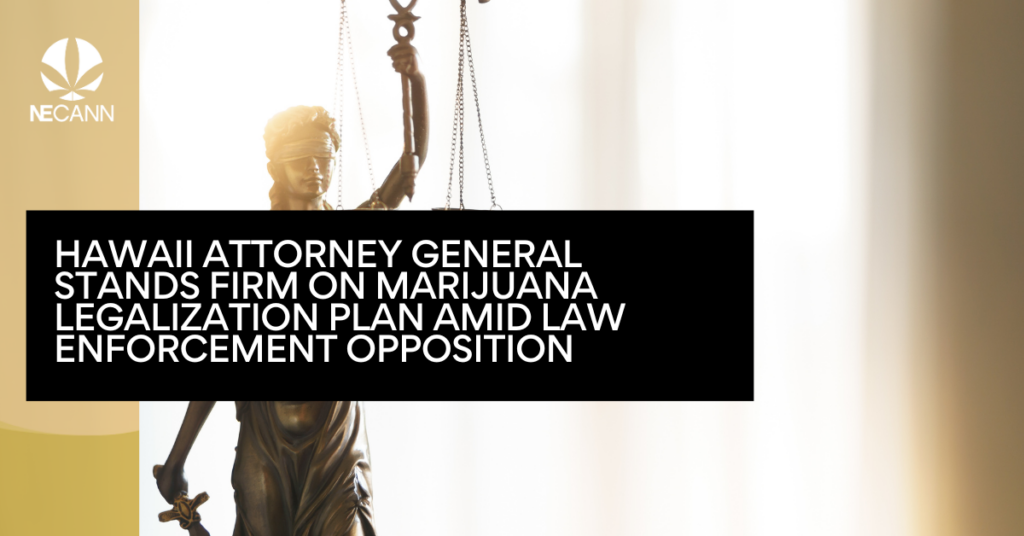Hawaii’s Attorney General, Anne Lopez, is facing criticism from law enforcement officials over her recently unveiled comprehensive marijuana legalization plan. The proposal, released in April, is part of the state’s ongoing efforts to enact adult-use cannabis regulations.
Despite initial praise from supporters in the legislature, the plan has encountered opposition from law enforcement representatives, including Honolulu Prosecuting Attorney Steve Alm. Alm contends that the current system of cannabis prohibition is not broken, and regulating adult-use cannabis could lead to increased hospitalizations without effectively addressing the illicit market.
However, David Day, a special assistant with the attorney general’s office, dismissed these concerns, stating that the bill takes law enforcement perspectives into account. He emphasized the collaborative effort between the Department of Law Enforcement and the Department of the Attorney General in drafting the legislation.
The attorney general’s plan includes key provisions:
- Adults aged 21 and older could purchase and possess up to one ounce of cannabis and five grams of non-flower marijuana products.
- Home cultivation of up to six plants per residence, with a maximum of 10 plants for a single household, would be permitted.
- A Cannabis Control Board would be established to regulate the market and issue licenses for various cannabis businesses, including cultivators, processors, dispensaries, and retailers.
- Licensing applicants must be Hawaii residents for at least five years, and individuals with certain felony convictions would be ineligible for licenses.
- The board would focus on promoting industry ownership diversity and could add criteria for licensure to address public health, safety, and participation from historically disadvantaged communities.
- Cannabis products would be subject to a 10% excise tax, in addition to the state’s standard 4% sales tax.
- The proposal also incorporates social equity measures, such as supporting businesses with at least 51% ownership by individuals residing in disproportionately impacted communities.
While some advocates support the attorney general’s effort, they call for additional revisions to enhance equity and reduce criminalization. The ongoing debate reflects the complexities surrounding cannabis legalization in Hawaii, with lawmakers aiming to finalize the legislation by 2024.
As the attorney general and law enforcement engage in a dialogue on the merits and challenges of the proposal, Hawaii moves closer to potential cannabis regulation. The attorney general’s office remains committed to addressing concerns raised by critics and refining the plan to strike a balance between public health, safety, and social equity.




